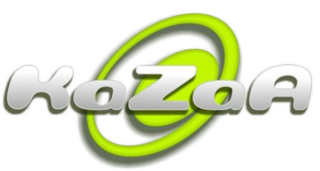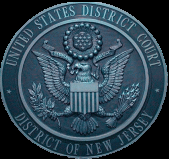Chapter 11 is a chapter of Title 11, the United States Bankruptcy Code, which permits reorganization under the bankruptcy laws of the United States. Chapter 11 bankruptcy is available to every business, whether organized as a corporation, partnership or sole proprietorship, and to individuals, although it is most prominently used by corporate entities. In contrast, Chapter 7 governs the process of a liquidation bankruptcy, though liquidation can be done under Chapter 11 also; while Chapter 13 provides a reorganization process for the majority of private individuals.

Kazaa Media Desktop started as a peer-to-peer file sharing application using the FastTrack protocol licensed by Joltid Ltd. and operated as Kazaa by Sharman Networks. Kazaa was subsequently under license as a legal music subscription service by Atrinsic, Inc. According to one of its creators, Jaan Tallinn, Kazaa is pronounced ka-ZAH.
Reverse discrimination is discrimination against members of a dominant or majority group, in favor of members of a minority or historically disadvantaged group. Groups may be defined in terms of disability, ethnicity, family status, gender identity, nationality, race, religion, sex, and sexual orientation, or other factors. This discrimination may seek to redress social inequalities under which minority groups have had less access to privileges enjoyed by the majority group. In such cases it is intended to remove discrimination that minority groups may already face. The label reverse discrimination may also be used to highlight the discrimination inherent in affirmative action programs. Reverse discrimination can be defined as the unequal treatment of members of the majority groups resulting from preferential policies, as in college admissions or employment, intended to remedy earlier discrimination against minorities.

Celestica Inc. is a Canadian multinational electronics manufacturing services (EMS) company headquartered in Toronto, Ontario.
Tyco International plc was a security systems company incorporated in the Republic of Ireland, with operational headquarters in Princeton, New Jersey, United States. Tyco International was composed of two major business segments: Security Solutions and Fire Protection.

DeVry University is a for-profit college based in the United States. The school was founded in 1931 by Herman A. DeVry as DeForest Training School and officially became DeVry University in 2002. As of 31 March 2018, DeVry reported an undergraduate enrollment of 17,936 and a graduate school enrollment of 7,299—a total of 25,235 students.
The multinational technology corporation Apple Inc. has been a participant in various legal proceedings and claims since it began operation and, like its competitors and peers, engages in litigation in its normal course of business for a variety of reasons. In particular, Apple is known for and promotes itself as actively and aggressively enforcing its intellectual property interests. From the 1980s to the present, Apple has been plaintiff or defendant in civil actions in the United States and other countries. Some of these actions have determined significant case law for the information technology industry and many have captured the attention of the public and media. Apple's litigation generally involves intellectual property disputes, but the company has also been a party in lawsuits that include antitrust claims, consumer actions, commercial unfair trade practice suits, defamation claims, and corporate espionage, among other matters.
Texaco Inc. v. Dagher, 547 U.S. 1 (2006), was a decision by the Supreme Court of the United States involving the application of U.S. antitrust law to a joint venture between oil companies to market gasoline to gas stations. The Court ruled unanimously that the joint venture's unified price for the two companies' brands of gasoline was not a price-fixing scheme between competitors in violation of the Sherman Antitrust Act. The Court instead considered the joint venture a single entity that made pricing decisions, in which the oil companies participated as cooperative investors.

24 Hour Fitness is a privately owned and operated fitness center chain headquartered in San Ramon, California. It is the world's largest fitness chain based on memberships and the second in number of clubs, operating 420 clubs in 13 U.S. states with four million clients. 24 Hour Fitness also employs a collections contracting company located in Jamaica. The company was founded by Mark S. Mastrov and owned by AEA Investors. 24 Hour Fitness operates a nutritional supplement company, Apex Fitness Group, which is also the distributor of the Bodybugg system. Their motto is "Improving lives through fitness."
Vroegh v. Eastman Kodak Company, et al. is a class action complaint that alleges that the defendants, "[i]n marketing, advertising and/or packaging their Flash Memory Cards and Flash Memory Drives, Defendants misrepresent the size of the memory storage contained in the Flash Memory Cards and Flash Memory Drives." The complaint accuses the defendants of "false advertising, unfair business practices, breach of contract, fraud, deceit and/or misrepresentation, and violation of the California Consumers Legal Remedy Act".
Dun & Bradstreet, Inc. v. Greenmoss Builders, Inc., 472 U.S. 749 (1985), was a Supreme Court case which held that a credit reporting agency could be liable in defamation if it carelessly relayed false information that a business had declared bankruptcy when in fact it had not.
Intelius, Inc. is a public records business headquartered in Seattle, Washington, United States. It provides information services, including people and property search, background checks and reverse phone lookup. Users also have the ability to perform reverse address lookups to find people using Intelius’ services and an address. Intelius, founded by former InfoSpace executives, was started in 2003. Intelius was ranked as the best background check service by TopTen Reviews in 2017 and it was given 4.5 stars out of 5 on Background Checks.org.
Smart Technologies Corporation is a Canadian company headquartered in Calgary, Alberta, Canada. Founded in 1987, Smart Technologies is best known as the developer of interactive whiteboards branded as "Smart Boards".

Doe v. Chiquita Brands International is a class-action lawsuit brought in the United States District Court of New Jersey, filed on June 13, 2007. The suit was filed by Colombian families represented by EarthRights International (ERI), together with the Colombian Institute of International Law (CIIL), and Judith Brown Chomsky, against the Cincinnati-based producer and distributor of Chiquita Brands International. The suit alleges that Chiquita funded and armed known terrorist organizations in Colombia.

MonaVie is a defunct, American multi-level marketing company that manufactured and distributed products made from blended fruit juice concentrates, powders, and purées. The company was the subject of several controversies. Health claims for its products had not been scientifically confirmed or approved by regulatory authorities, and its chairman had been previously involved in false health claims concerning another beverage company. According to Forbes, MonaVie's business plan resembled a pyramid scheme. In 2015, the company defaulted on a US$182 million loan and went into foreclosure.

ViSalus Sciences is an American multilevel marketing (MLM) company based in Los Angeles, California, with offices in Downtown Detroit, Michigan. The company markets weight management nutritional products, dietary supplements and energy drinks in the United States, Canada and United Kingdom. As of September 2014, the company had a network of approximately 31,000 independent distributors. Weight management products, including Vi-Shape meal replacement shake and Vi-Trim Clear Control Drink Mix, form the bulk of the company's sales. A 2016 class action suit alleged racketeering and fraudulent pyramid scheme selling of distribution rights.
High-Tech Employee Antitrust Litigation is a 2010 United States Department of Justice (DOJ) antitrust action and a 2013 civil class action against several Silicon Valley companies for alleged "no cold call" agreements which restrained the recruitment of high-tech employees.
Google has been involved in multiple lawsuits over issues such as privacy, advertising, intellectual property and various Google services such as Google Books and YouTube. The company's legal department expanded from one to nearly 100 lawyers in the first five years of business, and by 2014 had grown to around 400 lawyers. Google's Chief Legal Officer is Senior Vice President of Corporate Development David Drummond
China Agritech v. Resh is a case pending before the Supreme Court of the United States.








